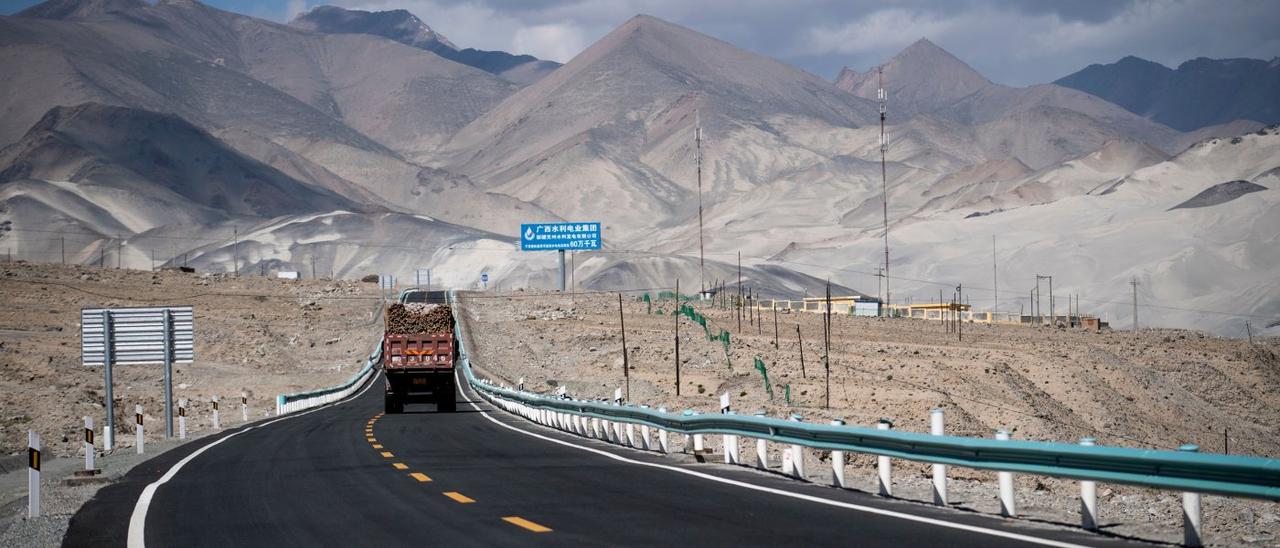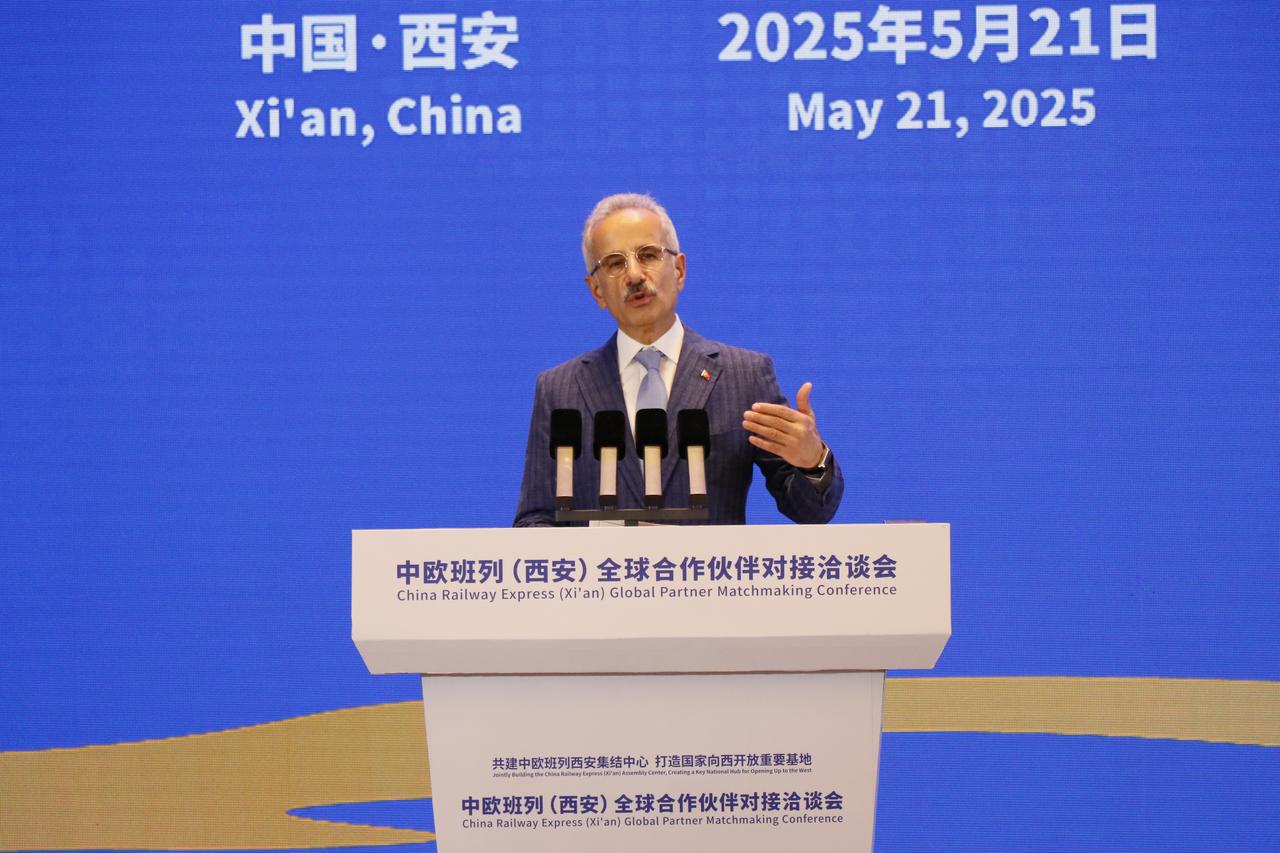
At the ninth Silk Road International Fair in Xi’an, China, Turkish Minister of Transport and Infrastructure Abdulkadir Uraloglu emphasized Türkiye's pivotal role in connecting China and Europe through a fast, reliable, and predictable route.
He highlighted that the Middle Corridor naturally complements China's Belt and Road Initiative (BRI), underscoring Türkiye's support for the BRI within a win-win framework.
Minister Uraloglu noted that the Middle Corridor offers a strategic alternative for freight transportation, enhancing regional connectivity and economic integration. He stated that Türkiye's investments in infrastructure projects, such as railways and logistics centers, align with the objectives of the BRI, facilitating seamless trade between Asia and Europe.

Türkiye's commitment to the BRI is evident through its active participation in initiatives that promote mutual benefits, according to the minister.
The collaboration between both countries aims to strengthen economic ties, increase trade volumes, and foster cultural exchanges, contributing to the prosperity of both nations. For experts, Türkiye's strategic location and infrastructure investments position it as a key partner in realizing the goals of the BRI, enhancing its role in international trade networks.
The latest foreign trade data released by the Turkish Statistical Institute (TurkStat) and the Ministry of Trade for the January-July period has highlighted a significant trade imbalance between Türkiye and China. The numbers paint a stark picture of Türkiye's growing dependency on Chinese imports, raising concerns about the sustainability of this trade relationship.
In 2023, Türkiye exported goods worth $3.3 billion to China while importing a staggering $45 billion worth of products from the country. "The Dragon" now accounts for over 13% of Türkiye’s total imports, solidifying its position as Türkiye’s largest import partner.
The imbalance is not just a matter of numbers; it reflects deeper economic dependencies. While imports from China are predominantly intermediate goods, the scale of reliance is unparalleled when compared to other trade partners. This dynamic not only affects Türkiye’s trade balance but also influences domestic production costs and market competitiveness.
Ahmet Faruk Isik, a research fellow at the ChinaMed Project, Torino World Affairs Institute (TWAI), emphasizes the need for Türkiye to diversify its exports to China and highlights the significance of welcoming increased investments from Chinese companies, particularly in high value-added sectors as the fastest way to address the situation.